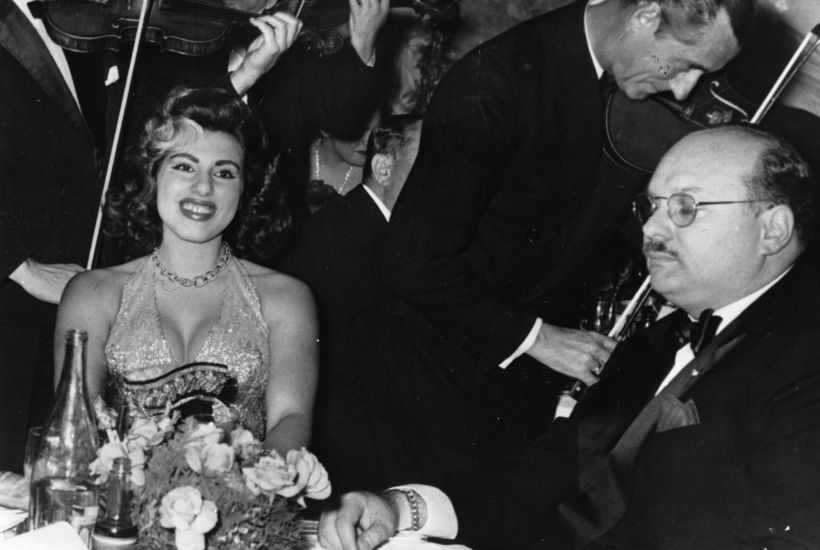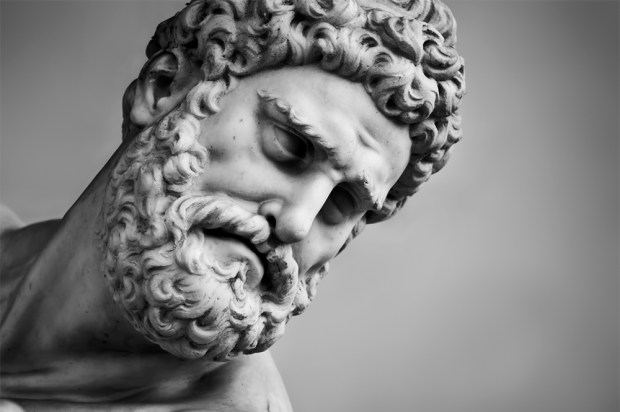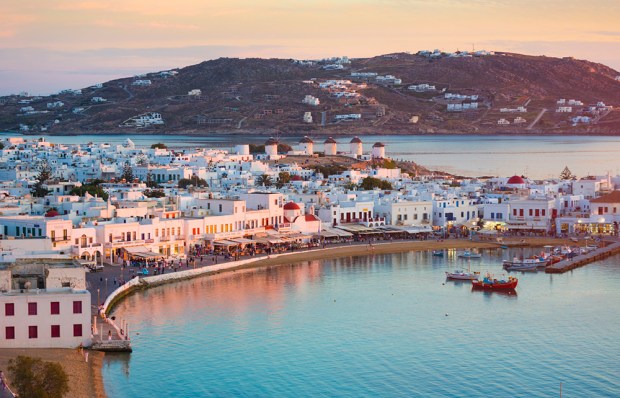I remember it well. It was August 1952, and I was dining with my parents on the Palm Beach casino’s patio in Cannes, when my father got up and went inside to gamble. He came back rather excited and told us that a friend of his, a Greek ship owner by the name of George Coumantaros, had passed eight hands without garage at baccarat and had won a fortune. (He bought a beautiful sailing boat and named her, what else, Baccarat.)
The next day we went out sailing on the Vagrant and news came over the wireless that King Farouk of Egypt had been deposed by the military. General Naguib led the coup, and was himself overthrown two years later by Colonel Gamal Abdel Nasser, whose pan-Arab dreams ended in tears with his death in 1970. Farouk was a hell of a king — for the 18th century, that is. He gambled and whored and lived in grand palaces, and woe to one’s woman if he spotted her in a nightclub and asked her over. I met him many times in later years, in Lausanne, where he would arrive at the Lausanne Palace hotel and have the concierge open up the window displays and show him the latest watches and jewels. He would then go to the bar and we’d dish the you-know-what.
He was a sad, fat and lonely man but a gentleman. He often talked about his sister Fawzia, the Shah’s first wife, who continued to live in Alexandria until her death on 2 July of this year. (She was 91, a great beauty who left the Tehran court after six years complaining of boredom and the Shah’s fooling around. The Shah did fly women in from European capitals, but what’s the use of being Shah if you don’t import women. A friend, who was flown in, gave me details long ago, and the old boy was nice and gentle, nothing like the pigs that do this type of thing today.)
Farouk became King at 16, was very handsome, and was deposed at 32, prematurely old and very fat. He had not kept up with the times and the winds of change. I got to Cairo and Alexandria during the late Fifties, in fact I flew in every weekend on a small plane from Khartoum, where my father had the largest textile factory in all of Africa. Even after five years of Arab socialism, there was no more cosmopolitan city on earth than Cairo. Alexandria was even more so, full of Europeans with marvellous old-fashioned manners, gentlemen’s clubs for Europeans only, high teas in the late afternoon, and terrific nightclubbing late into the night. Men wore white linen suits, ladies carried fans — it was straight out of the movies. Yet the newspapers were spewing hatred against the ‘foreign bloodsuckers’ and other such epithets. No one gave a damn until it was too late.
I was up early in the morning and off to the Gezira tennis club, where I would hit with Badr-El-Din, the Egyptian number one, or with my friend baron Gottfried von Cramm, a three-time losing finalist at Wimbledon and by far the greatest gentleman who ever played the game. In the afternoon we played gin rummy at the Muhammad Ali club, where the only locals were pashas or beys, the rest being Europeans. Many of the city’s best hotels and cafés were owned and run by Greeks, Armenians and some French. The servants wore white djellabas, red fezzes, and carried the gleaming glass of the hookah pipes. Alexandria’s population was around 250,000, and the great majority were Greeks. I stayed at the Semiramis hotel and, although it’s been close to 60 years now, I can still smell the roasted nuts, imagine the swaying palms, and feel the romantic atmosphere as I went out every night looking for adventure.
Cairo and Alexandria had little in common with the barren and sandy hinterland that was the Sahara and the Nile. Groppi’s was the best restaurant-nightclub in Cairo, and one that Field Marshal Rommel had boasted he’d be dining in just before his supplies ran out. It was jasmine-scented and as attractive a place as I’d ever been to. English and French were the lingua franca, and the Levantine women were to die for. None of this covering-up crap, and their fashion was the latest from Paris. I was madly in love with a married lady who teased me non-stop but never gave herself to me. We would go to a piano bar called Santa Lucia, where Grace would lie on the piano and sing ‘Dimmi quando tu verrai, dimmi quando, quando quando…’ She was straight out of Durrell’s Justine, in fact she was Justine, a real heartbreaker with whom I spoke over the telephone a few years ago. ‘I want to see you,’ I said. ‘I wouldn’t if I were you,’ came the not-so-cryptic answer. Muslim Princess Toussoun was another lady one would throw oneself into the Aswan Dam for, married to an older Turkish prince with a handsome French diplomat as escort. The youngest and most beautiful was Katie Sursock, who is now Princess Saddrudin Aga Khan, a widow, but one I see weekly here in Gstaad. It was a hell of a life and a hell of a group, and now it’s — sorry for this – Gone with the Wind.
As the sainted editor wrote in the Telegraph last week — he’s the only one who got it right — property rights in the Arab world, not democracy, is what the masses want and need. The right to sell their goods without having to give half the profit to a cop, the right to keep their salary without giving most of it to the foreman. It’s as simple as that.
Got something to add? Join the discussion and comment below.
Get 10 issues for just $10
Subscribe to The Spectator Australia today for the next 10 magazine issues, plus full online access, for just $10.
You might disagree with half of it, but you’ll enjoy reading all of it. Try your first month for free, then just $2 a week for the remainder of your first year.















Comments
Don't miss out
Join the conversation with other Spectator Australia readers. Subscribe to leave a comment.
SUBSCRIBEAlready a subscriber? Log in